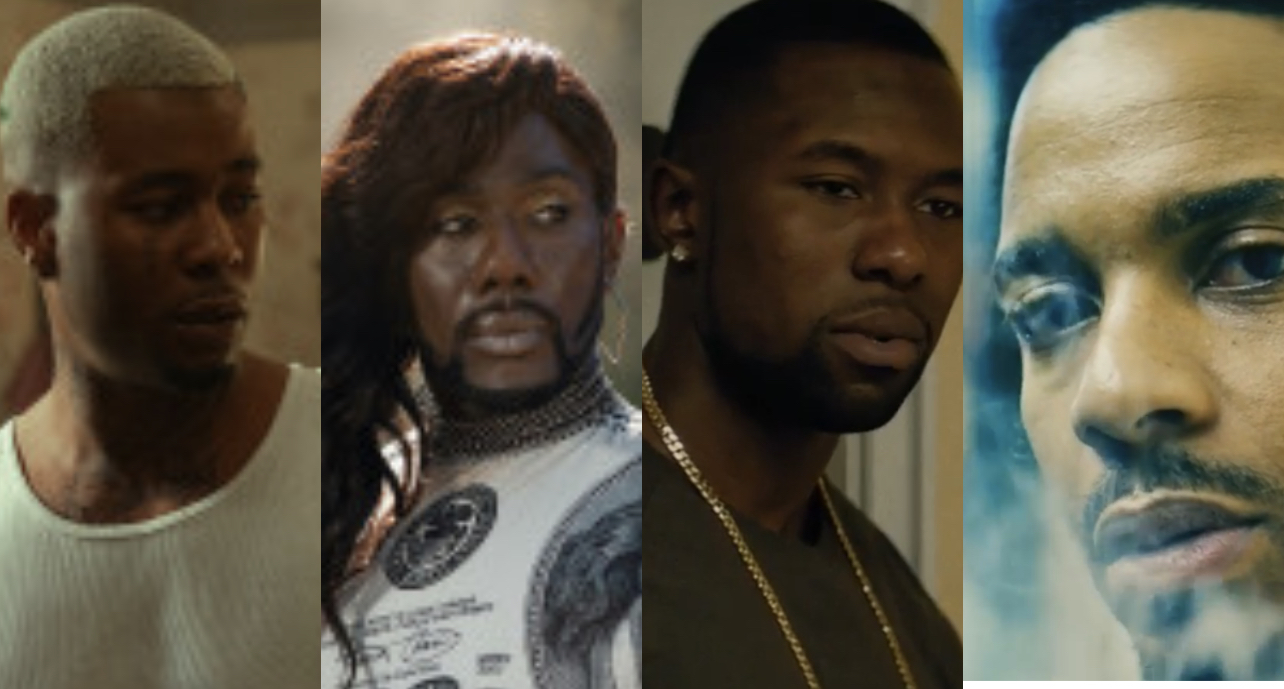
Starz/Instagram
P-Valley, the dramatic series written and executive-produced by Pulitzer Prize winner Katori Hall, has served wildly absurd and relatable storylines that captivated Black viewers over the past two years. However, it’s the scene between Lil’ Murda and Unca Clifford that had me in my emotional bag during the final episode of season two. Murda, played by J. Alphonse, finally comes to terms with his sexual identity, and is now ready to risk it all to be with Cliff, who is aptly played by Nicco Annan. Clifford spent the entire season deflecting to protect her heart, but Murda sees through her shenanigans and calls bullshit.
“You the fucking one that’s scared,” he confronts her. “You say you pushin’ me away for me, when you really pushin’ me away for you. You pushing me away ‘cause you don’t know you worthy of shit. That you worthy of bein’ took care of. All the protection, all the plates of yams and chicken n’ dressin’ all this … fucking love, Cliff.”
Some scenes just stick with you. Shoutout to @AllDayNicco and @JAlphonse_N for bringing this one to life. #PValley pic.twitter.com/coN4TeSjye
— P-Valley (@PValleySTARZ) August 16, 2022
Sexual orientation aside, this scene is a real tearjerker. It is a love story—a Black ass love story—one that I, admittedly, have never experienced.
As a Black woman who has loved Black men deeply and fiercely—down to their drawers and the cold, hard ground they walk on—not one has professed his love for me with such emotional intelligence. —And I’ll be the first to testify that not knowing your partner truly cares for you often conjures the notion that the love is unrequited. Enough of those type encounters, particularly between those we love, can surely seed doubts of worthiness.
We’ve seen this play out in Moonlight, Barry Jenkins’ coming of age movie that also tells a love story through a queer lens. Chiron, who is the outlier of his own life, traverses childhood seemingly unloved and uncared for and undesirable. It is crystal clear he doesn’t believe he deserves to be loved, either. The few scenarios that offer a glimpse of love are snatched away or just plain ole obscure—specifically the sexual encounter the character has with his schoolmate Kevin. The incident appears both isolated, and not, but ultimately contributes to Chiron’s low esteem and self worth, and how he emerges as Black, a hardened human who gives zero fucks about love. Rejection is just as insidious and as it is real.
It isn’t until Black reconnects with Kevin in adulthood that he allows himself to be loveable. That love is received in the way elder Kevin (Andre Holland) reaches out to Black (Trevante Rhodes), openly embraces him, does not reject him and allows him to feel safe within that embrace. I state emphatically, this is not a depiction of gay love. What we witness is Black love, a display of humanity, one that is often depraved in Black culture.
I have my father’s lips, his height, and his ability to shut off, shut down and walk away from people, places and things—much like Chiron does when he embodies Black. I don’t have any tangible relationship with the four children he fathered after me. I’m not particularly close to the paternal side of the family. For the most part, I can take things or I can leave them. This commonality is never lost on me, it’s just tucked away. The long buried realization resurfaced as I scanned a recent headline: “Dwyane Wade Files To Legally Change Daughter Zaya’s Name ‘To Conform With Gender Identity.’”
It wasn’t the headline or the story that affected me as much as the image embedded in the article—a black and white still of Zaya and D. Wade locked in an intense gaze of love and adoration for one another. The exchange between father and daughter is painstakingly vulnerable. Dwyane sees his daughter and shares a nonverbal communication that he is a site of safety. Zaya fully acknowledges being seen by her father and knows she is safe. I do not have my father’s last name and hardly had this level of his attention. For whatever reason he didn’t have it to give. And while this is not an indictment of my father, it is a testament to what many Black folks have lacked in their youth—visibility, security, the expression of unconditional love—and how it informs the way we might negotiate love as adults, much like Chiron, much like Unca Clifford.
It takes nothing to show love to someone you love. We gotta do better. —And by better I mean love on who you supposed to love on and make them hyper aware that they fucking deserve it—that they are worth it. Black love is worth it and there’s nothing queer about that.
RELATED CONTENT: Tevin Campbell Publicly Embraces His Sexuality As A Gay Man

0 Commentaires